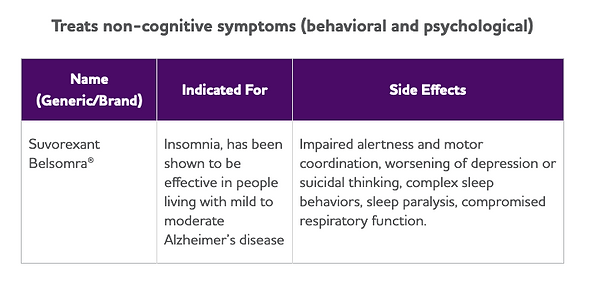TREATMENTS
Even though there is no one drug or intervention to treat Alzheimer’s for all people successfully; however, scientists are exploring many avenues to maintain the mental function of patients while delaying the disease as well as treating its underlying process. In 2023, a beta-Amyloid antibody IV infusion called Leqembi was Approved by FDA for patients with early Alzheimer's disease and Mild Cognitive impairment (MCI).
FDA currently approved three Amyloid PET ligands to diffuse plaques (F18-florbetapir, F18-florbetaben, F18-flutametamol) and one Tau-PET ligand (F18-flortaucipir) to bind to the paired helical filaments of Tau characteristic of neurofibrillary tangles (Loscalzo et al, 2022). Several FDA-approved medications can help reduce mild to moderate symptoms of Alzheimer’s such as Donepezil, rivastigmine, and galantamine while combination medication of memantine and donepezil are used for moderate to severe symptoms. They may help with certain behavioral problems; however, these drugs don’t change the underlying disease process.
The beta-amyloid targeting monoclonal antibody called Aducanumab is the first disease-modifying therapy approved by FDA accelerated approval program with concurrent additional study in progress to confirm its anticipated clinical benefit, with expected availability of its phase 4 clinical trial by early 2030. It helps reduce amyloid deposits in the brain and may help slow the progression of disease; however, it has not been shown to affect clinical outcomes such as progression of cognitive decline or dementia (NIA, 2021).


